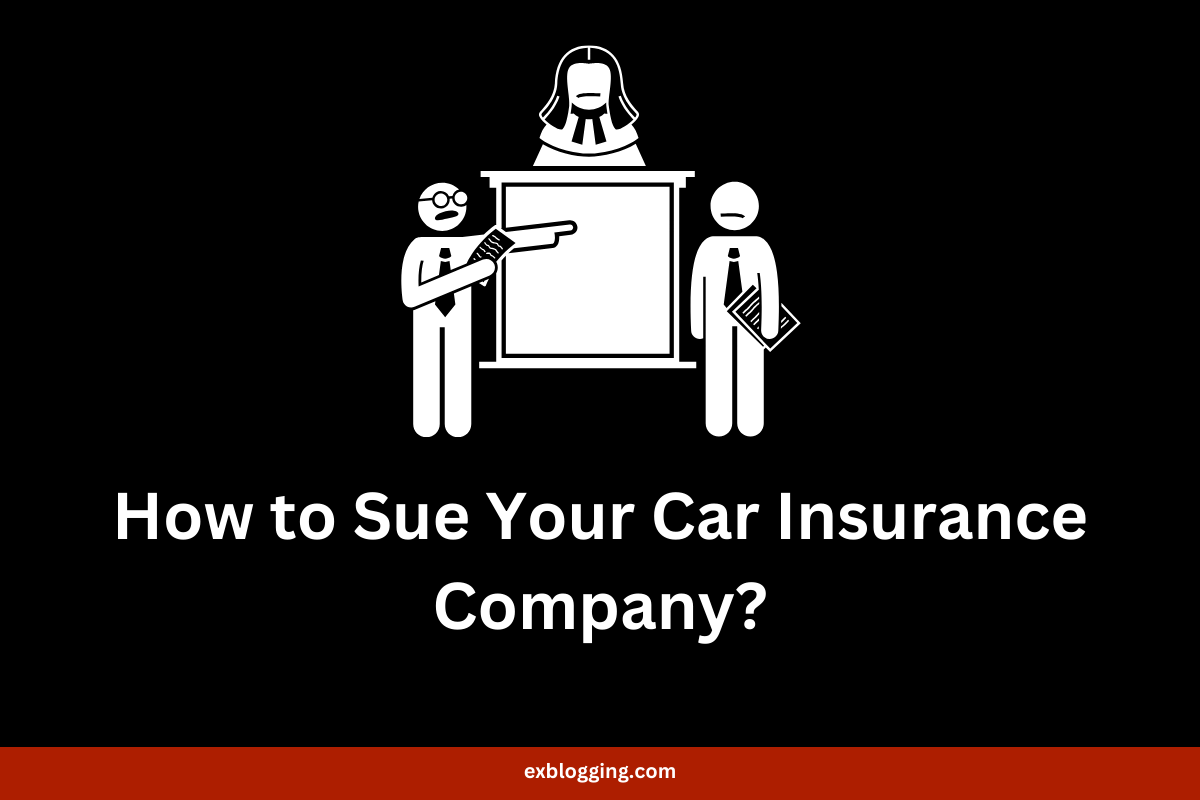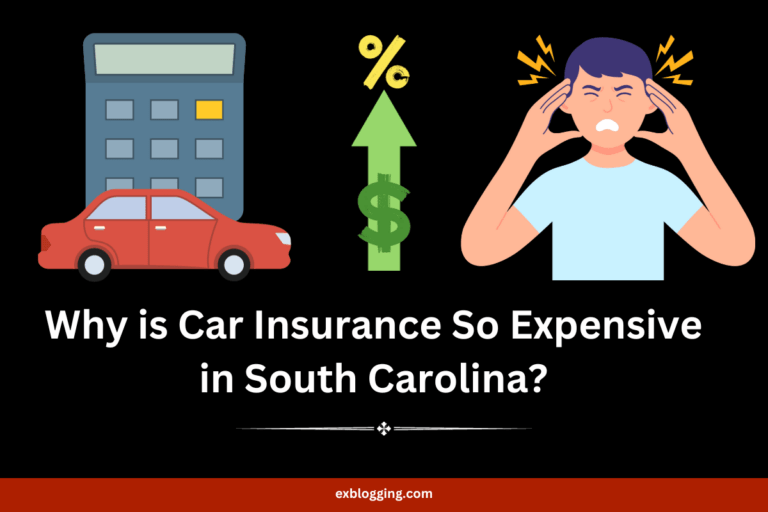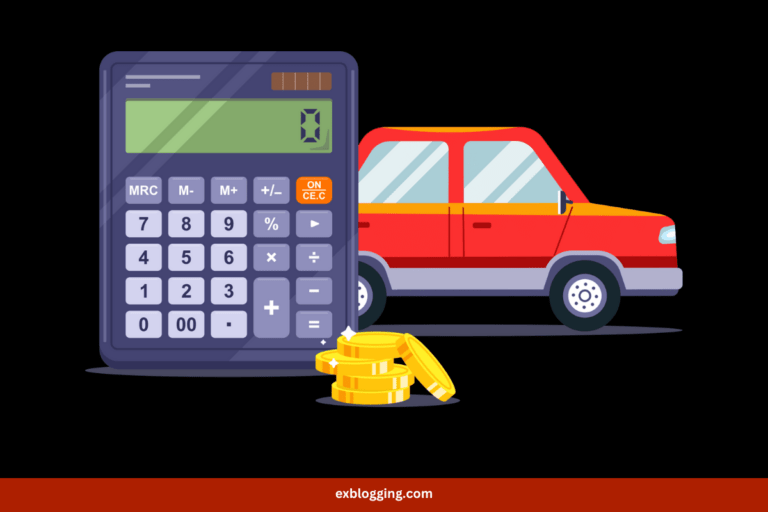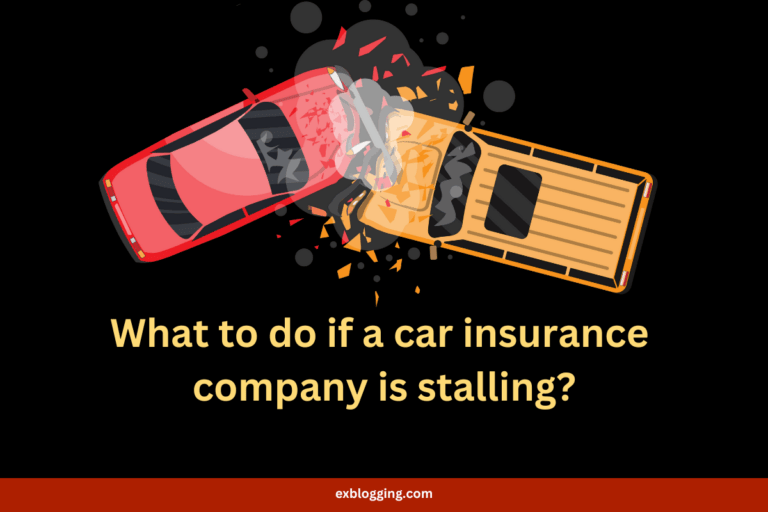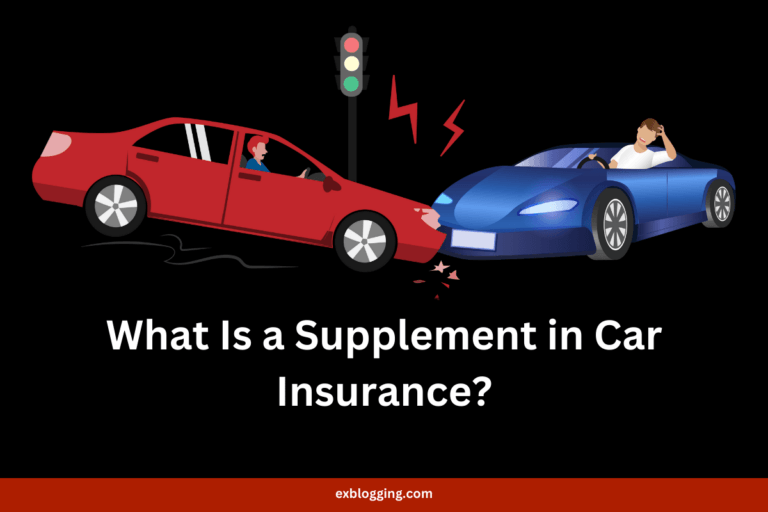Unleash the Power: How to Sue Your Car Insurance Company?
Car accidents happen every day nationwide, creating potential challenges for individuals. In the unfortunate event of an auto accident leading to injuries, having car insurance is vital for safeguarding drivers and third parties.
When involved in an accident, the repercussions can extend beyond physical harm, impacting your finances with medical bills and vehicle/property damage. If you become a victim due to the negligence of another driver, it’s unfair to bear the financial burdens alone. Unfortunately, insurance companies often complicate the process of obtaining rightful compensation for your losses.
Insurance firms may outright deny claims or offer inadequate compensation, leaving you struggling with the aftermath’s financial implications. Instead of settling for less than deserved, legal action against the insurer might become necessary.
To navigate this challenging terrain, consider hiring an experienced car accident attorney. They guide you through the intricate legal process, ensuring effective lawsuit filing and recovery of essential compensation for your recovery. By taking this step, you empower yourself with the necessary resources and support to move forward confidently.
Unveiling Negligence in Auto Accident Investigations
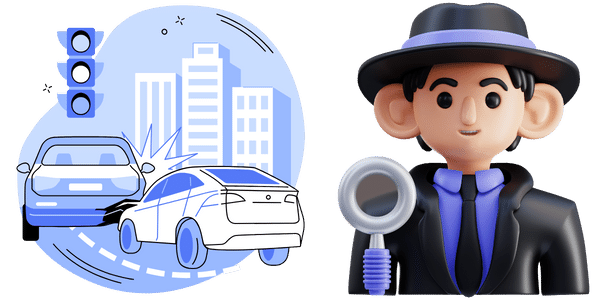
When you’re involved in a car accident, the process of seeking compensation often starts with filing an insurance claim. After initiating the claim, you may need to seek medical assistance or consult with a legal professional.
The insurance company conducts an investigation and proposes a settlement by examining:
- Whether their insured party is legally responsible for the accident.
- The estimated value of your injuries and damages.
- The causation link between the accident and your injuries and losses.
To pursue compensation, it’s crucial to establish who is at fault. If you choose to take legal action against the at-fault driver, your case typically revolves around the concept of negligence, demonstrating that their actions caused the accident.
Negligence is rooted in the idea that each party involved owes a duty of care to one another. Failing in this duty, resulting in an accident, can make the responsible party accountable for the ensuing injuries. All drivers are obligated to drive responsibly and adhere to traffic laws. If the at-fault driver breaches this duty, leading to an accident, you may have grounds to sue.
To prove negligence, you must demonstrate:
- The other driver owed you a duty of care, as all drivers are expected to drive responsibly.
- The other driver breached this duty by failing to exercise reasonable care, such as texting or running a red light.
- Due to their actions, you suffered an injury or incurred damages.
Establishing negligence in a personal injury case involves illustrating that the accident wouldn’t have occurred without the actions of the other driver.
In your legal complaint, you can outline physical, emotional, and financial damages. Without injuries or losses, a liability claim may not be viable.
Compensations You Can Claim After a Car Accident

Following a car accident, you may qualify for different types of damages based on your case’s specifics. These damages generally fall into two categories: economic and non-economic.
Economic Damages: These are quantifiable losses with a tangible value, such as:
- Medical Expenses: Covering emergency care, ongoing treatment, medications, and necessary medical equipment.
- Lost Income: Including current lost wages and potential future earning capacity if your ability to work is affected.
- Future Medical Treatment Costs: Anticipated expenses for ongoing medical care.
- Property Damage: Encompassing the costs of repairing or replacing your vehicle.
Non-economic Damages: These are subjective losses without a specific numerical value. They may include compensation for:
- Pain and Suffering: Reflecting the physical and emotional distress caused by the accident.
- Disfigurement: Addressing any lasting physical changes or scarring.
- Loss of Companionship: Compensating for the impact on personal relationships.
- Loss of Enjoyment of Activities: Acknowledging the diminished ability to engage in pre-accident activities.
In cases of extreme recklessness or intentional actions by the at-fault driver, punitive damages may be ordered by the court. This serves as a form of punishment, such as when the driver was intoxicated or texting during the accident.
It’s essential to note that insurance companies, driven by profit motives, might provide insufficient settlements. To navigate this, a skilled car accident lawyer can advocate on your behalf, negotiating with the insurance company and, if necessary, filing a lawsuit to ensure you receive the maximum compensation for your case.
Unlocking Compensation Reasons to Sue an Insurance Company
Insurance companies often prioritize settling claims for minimal value, pushing their interests over fair compensation. Furnishing comprehensive information to substantiate your claim is vital for influencing the case outcome.
In scenarios with substantial injuries or disputes over fault, pursuing legal action against the insurance company may become imperative. Contemplating a lawsuit arises when the insurance company resists settling, denies your claim without explanation, delays processing, or offers an unjust settlement despite severe injuries and losses.
Reasons prompting a lawsuit against an insurance company include doubts about the cause of your injuries, insufficient investigations, processing delays, or actions suggestive of bad faith, such as misrepresentation.
Insurance companies may reject claims for various reasons. Seeking guidance from a car accident lawyer before legal action is advisable. A lawyer can investigate the accident, review crucial documents like police reports, and build a robust case on your behalf.
Filing a complaint initiates a discovery period, involving evidence gathering, deposition, and pre-trial activities. Succeeding in your lawsuit demands collecting relevant records and accident-related documents to substantiate your case.
Crucial Steps to Expose Uncooperative Insurance Companies
When contemplating legal action against an insurance company, your lawyer plays a pivotal role in building a strong case by gathering compelling evidence to support your claims. If your insurance claim was unjustly denied, concrete proof like medical or auto repair bills becomes crucial in validating your claim.
Your car accident lawyer may collect and present various forms of evidence:
- Communication Records: Keep a record of all interactions with the insurance company, such as emails, letters, voicemails, or direct conversations (in-person or over the phone). Taking detailed notes during these interactions is advisable.
- Policy Documentation: A thorough review of your insurance policy and the written denial letter is essential for your lawyer to proceed effectively.
- Loss Record: Maintain a detailed account of workdays missed due to accident-related injuries. If your injuries affect job performance or lead to a loss of enjoyment in daily activities, document these aspects and inform your attorney.
- Medical History Chronicle: A comprehensive record of your medical history related to the accident is crucial in strengthening your case.
- Expense Report: Keep a thorough record of all out-of-pocket expenses tied to the accident, including receipts, dates, and cost breakdowns. This detailed list should encompass expenses such as lost income and money spent on medical procedures.
The discovery phase stands as the lengthiest stage in the litigation process. Here, both your lawyer and the insurance company’s representative delve into the facts of your case and review all evidence provided by both parties.
Upon the conclusion of the discovery phase, your lawyer will either negotiate a settlement or prepare for trial. Filing a lawsuit doesn’t necessarily mean your case will go to trial, as most car accident cases find resolution through negotiations before reaching the courtroom. If negotiations hit an impasse, your attorney might recommend engaging in mediation as an alternative to trial.
Navigating this process is complex, underscoring the importance of a skilled car accident lawyer who can guide you through each step, ensuring your rights are protected and maximizing your chances of a favorable outcome.
Navigating Conflict Resolution: Harnessing Mediation for Positive Outcomes
Mediation stands out as an effective alternative dispute resolution method, offering a collaborative approach to resolving conflicts, especially when dealing with issues like denied claims or undervalued settlements. In this process, a neutral third party, known as the mediator, plays a crucial role in facilitating communication and negotiation between your legal representative and the insurance companies involved. Unlike the traditional adversarial nature of litigation, mediation brings a more cost-efficient and less confrontational route to finding resolutions.
One of the notable advantages of mediation is its financial efficiency, providing a pathway for a swift resolution to insurance-related conflicts. This not only saves time but also minimizes the financial burdens associated with a prolonged court battle. The collaborative and solution-oriented nature of mediation helps both parties avoid the emotional and financial toll that often accompanies protracted legal proceedings.
Mediation’s efficiency is further highlighted by its relatively shorter duration. While court battles can extend over months or even years, mediation typically concludes within a matter of weeks. This quicker resolution process ensures that both parties can move forward promptly, focusing on other aspects of their lives without the protracted stress of legal disputes.
However, it’s essential to acknowledge the limitations of mediation. Some insurance companies may not approach this method earnestly, employing tactics to delay responses or making incremental negotiations to wear down claimants. Moreover, certain insurers have pre-approved mediators who may have biases, potentially favoring the insurance company. In such cases, negotiations between attorneys become essential to ensure the selection of a neutral and unbiased mediator.
Despite its benefits, mediation isn’t foolproof, and negotiations might not always lead to a resolution. If an agreement isn’t reached through mediation, your case may proceed to trial. During a trial, your attorney will present evidence, witness statements, and arguments to support your claims in a more formal legal setting. While mediation isn’t a guaranteed solution, its advantages in terms of efficiency and cost-effectiveness make it a valuable avenue for dispute resolution in many cases.
Explore More: Discover related Topics for Further Insights and Guidance:
When is a Car a Write Off Insurance?
What is a Supplement in Car Insurance?
What if car insurance doesn’t pay enough?
How to Settle a Car Accident Without Insurance?
